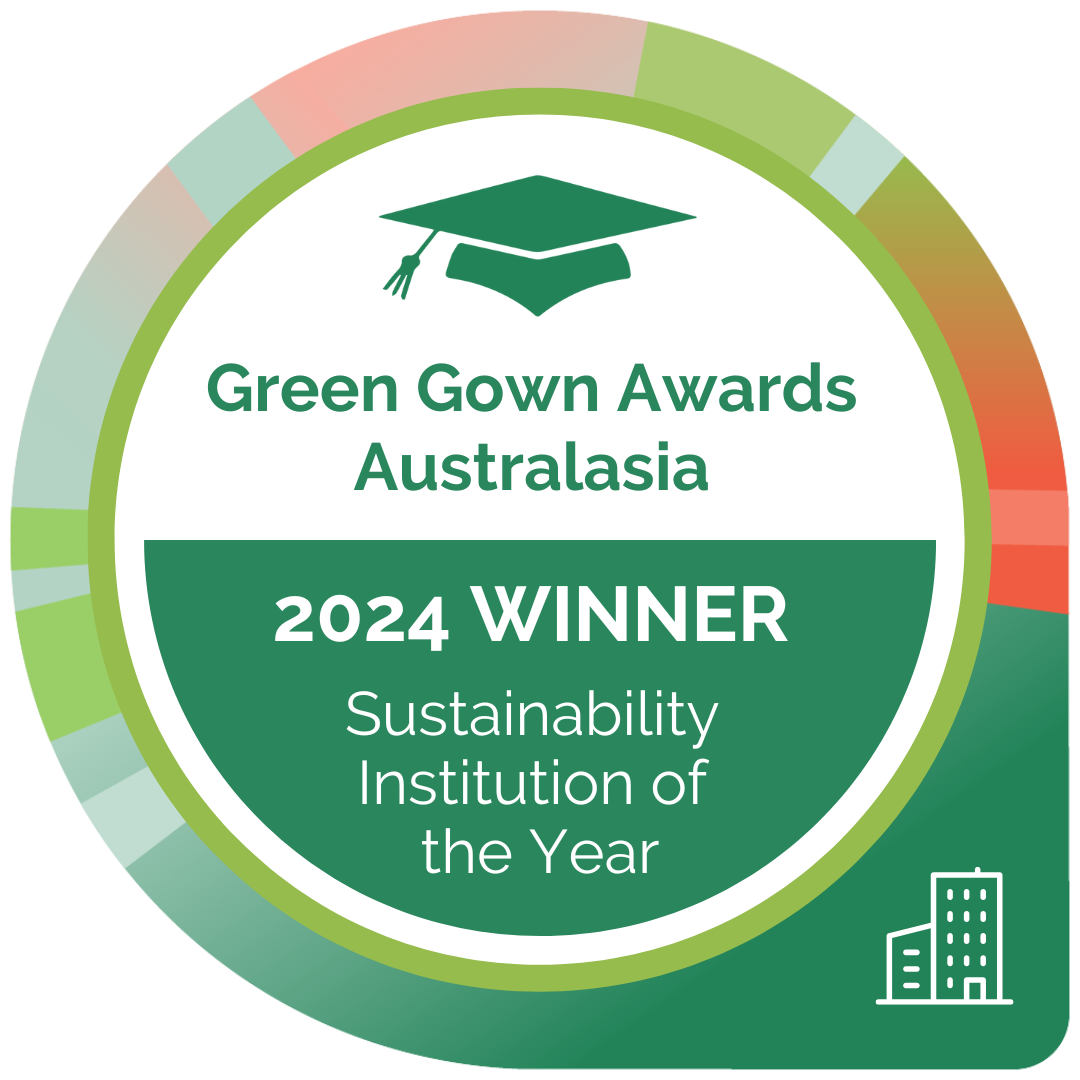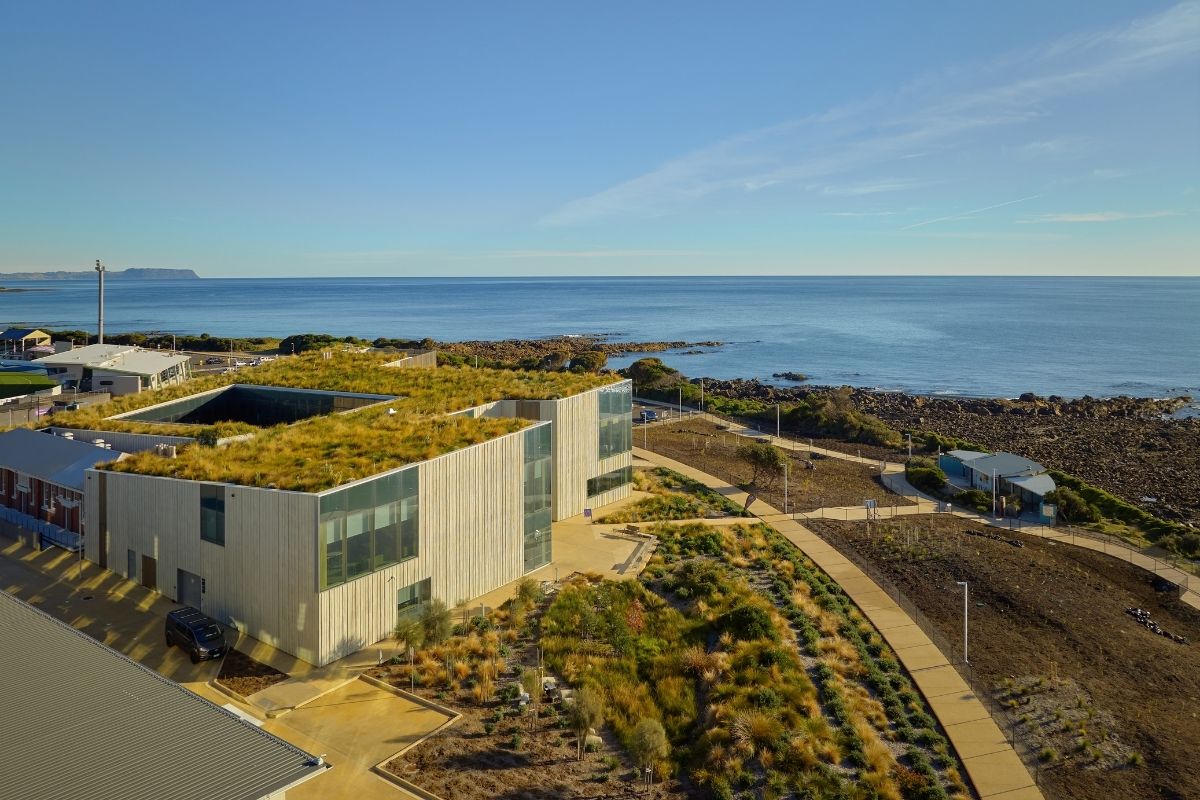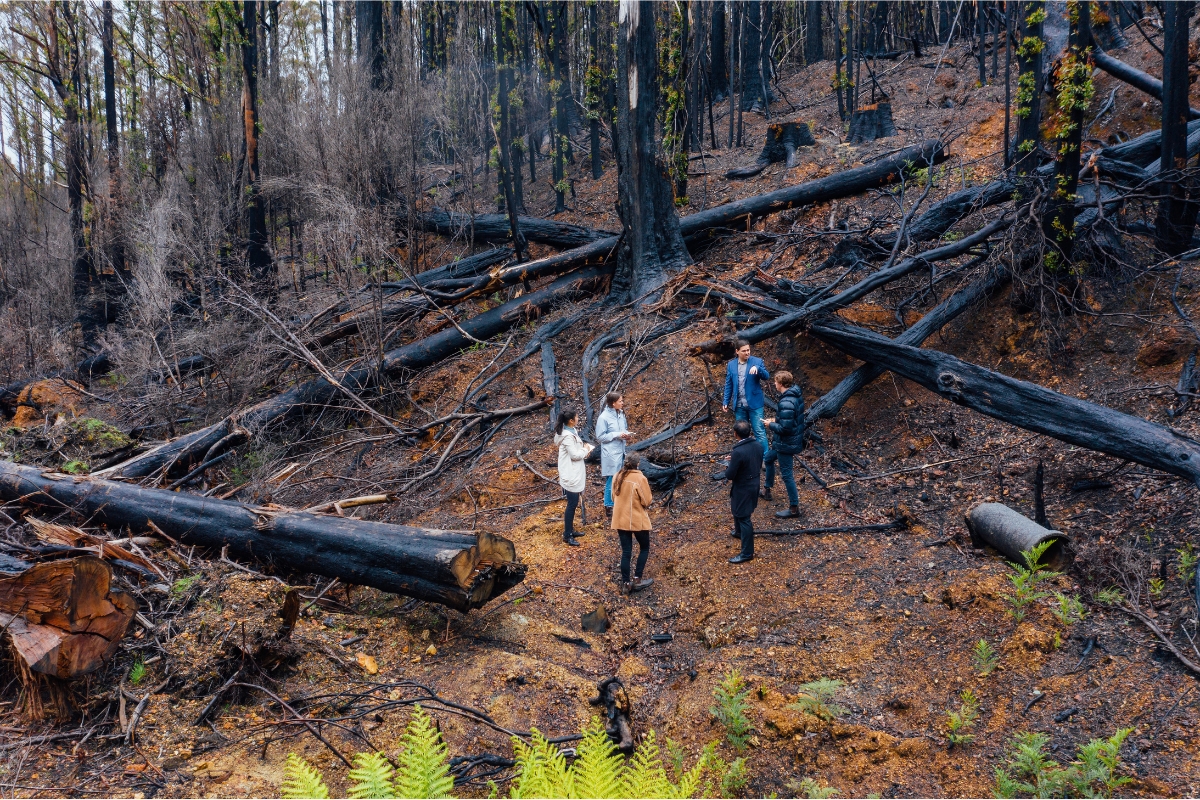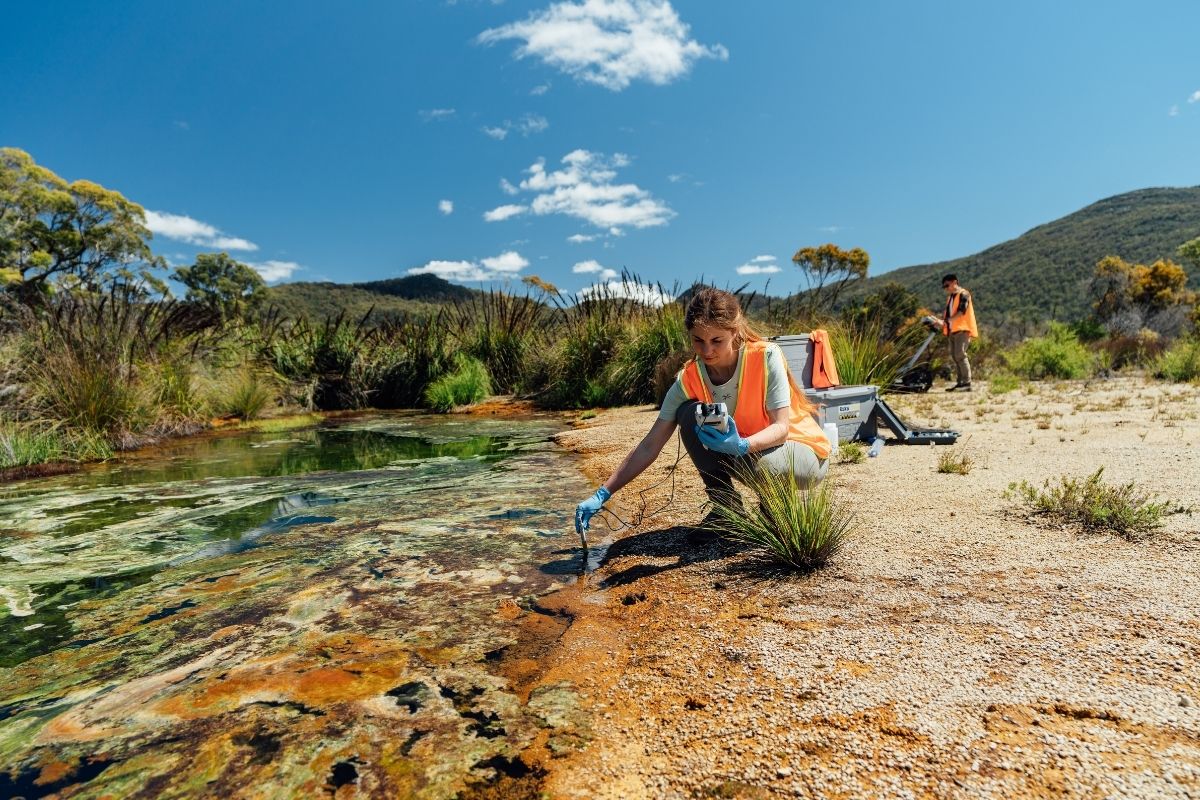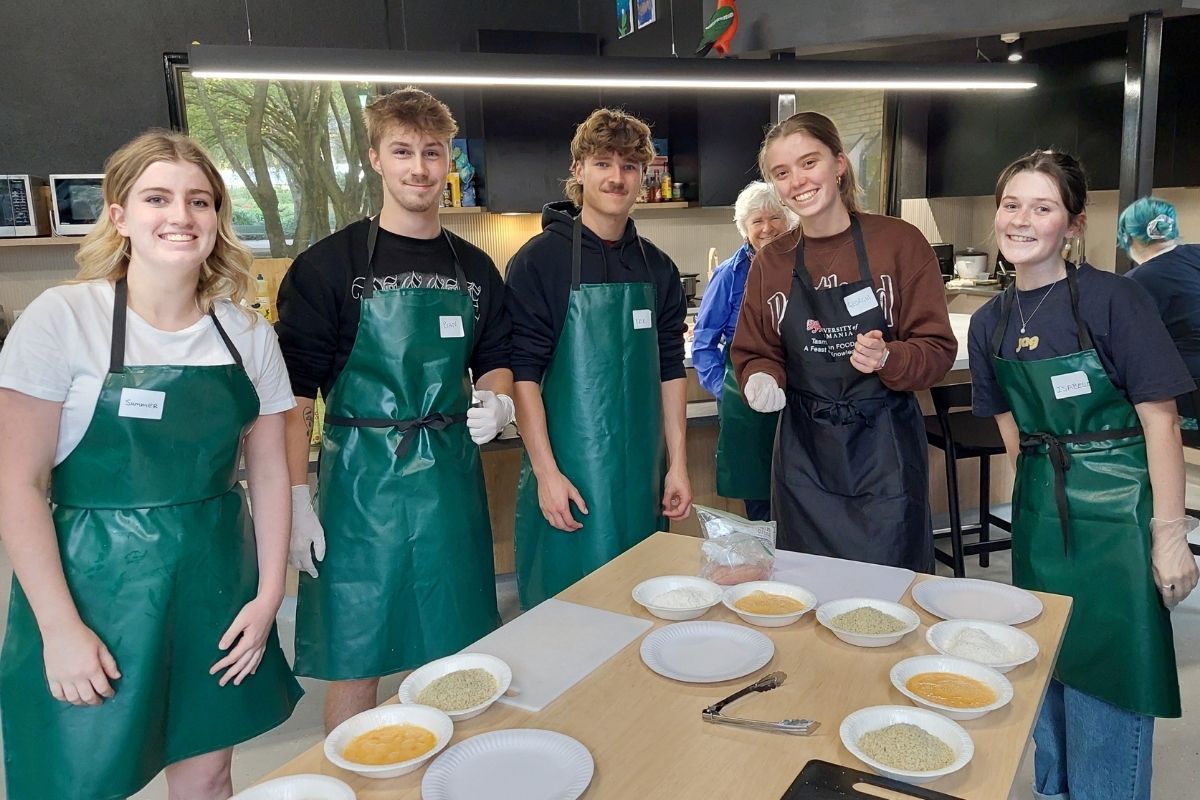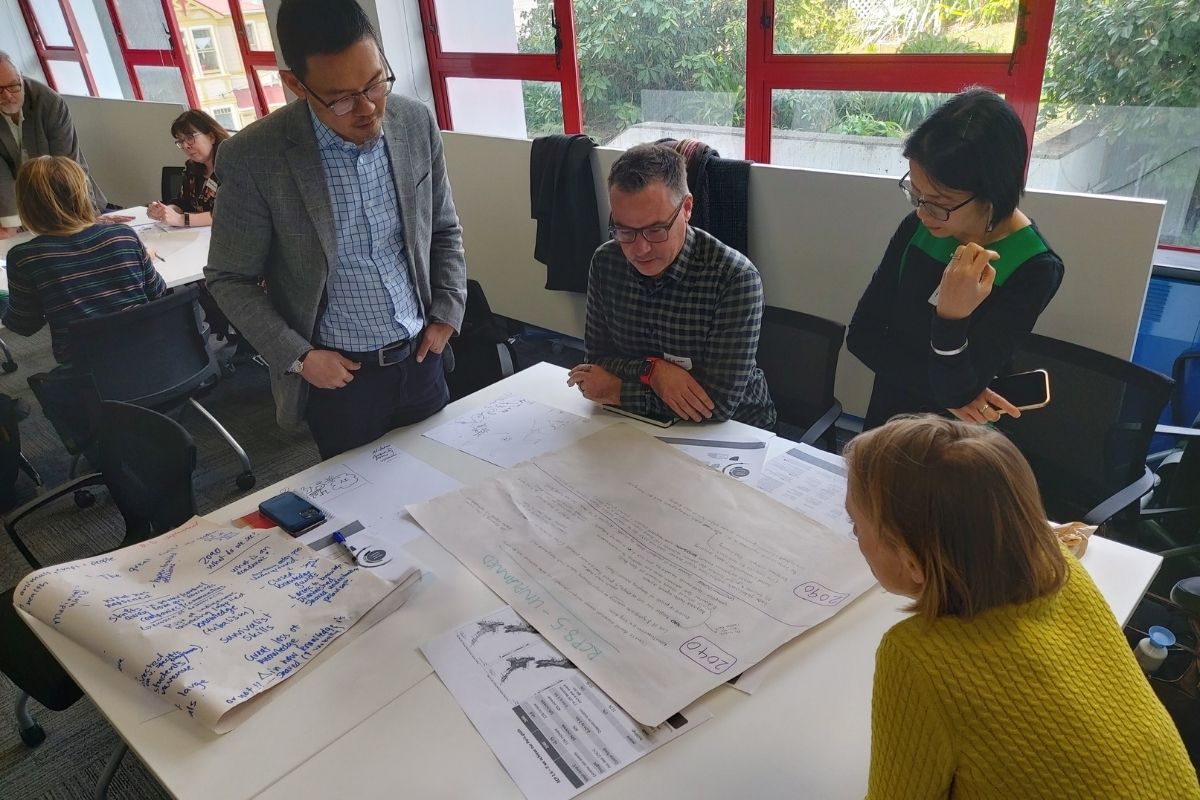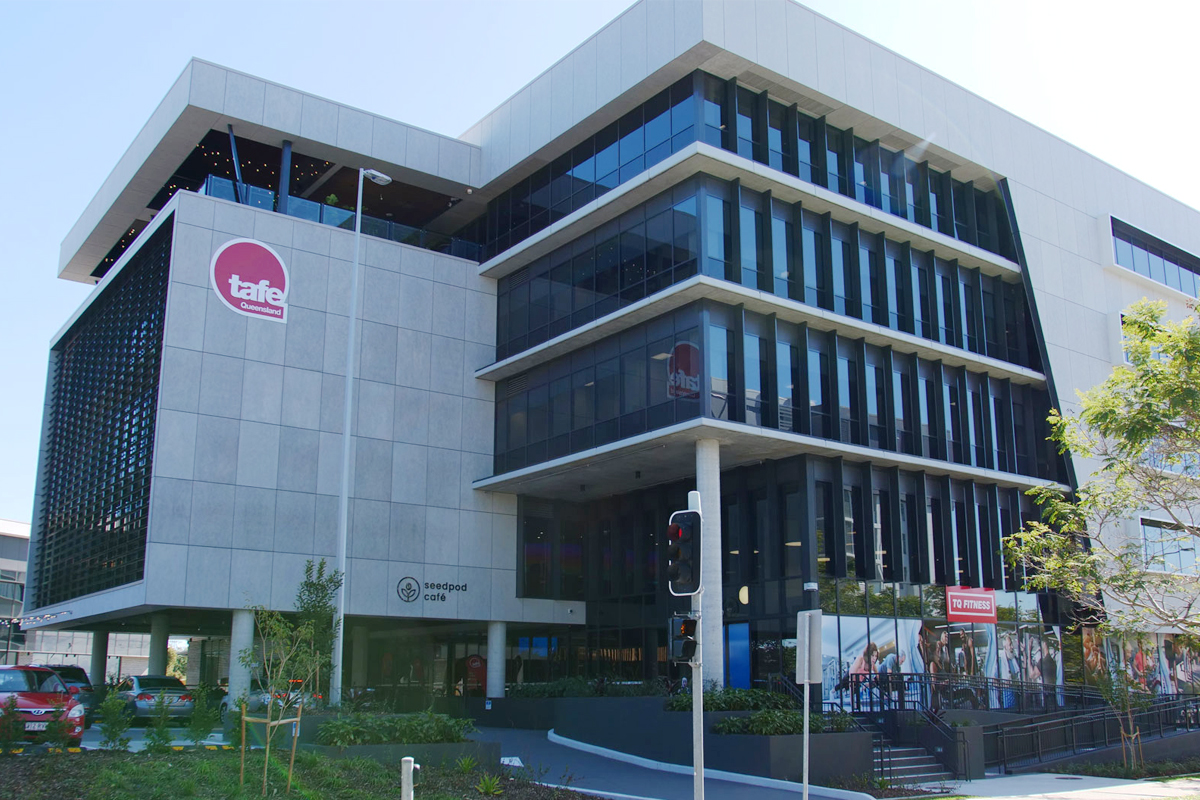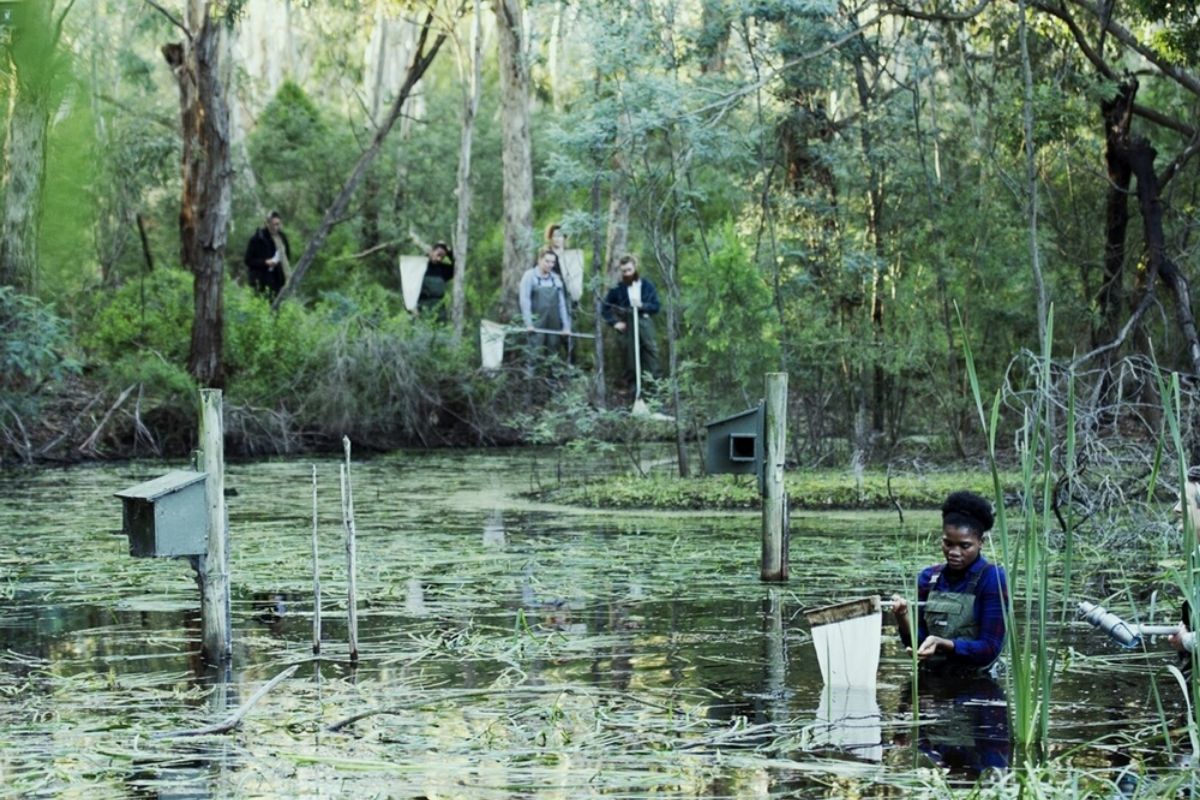Sustainability Institution of the Year/Winners category
The University of Technology Sydney (UTS) has established itself as a leader in sustainability through its comprehensive and integrated approach that spans over 15 years. The initiative titled “UTS Making a Splash in Global Impact” underscores the university’s commitment to embedding sustainability into every aspect of its operations, research, and education. UTS’s approach is characterised by a whole-of-institution strategy that prioritises the Sustainable Development Goals (SDGs), climate action, and social justice, leading to global recognition and tangible outcomes in sustainability performance.

Environmental and Social Benefits
- Carbon Emissions Reduction: UTS has significantly reduced its greenhouse gas emissions, achieving a reduction from 42,948 tonnes CO2-e in 2010/11 to 33,964 tonnes CO2-e in 2022/23. This has been accomplished through a combination of energy efficiency measures, renewable energy sourcing, and the implementation of a Climate Positive Plan aiming for Net Zero by 2025 and Climate Positive by 2029.
- Water and Energy Efficiency: The university has improved its energy intensity from 0.62 GJ/m2 GFA to 0.56 between 2018 and 2022, and its water intensity from 0.57 KL/m2 GFA to 0.36 over the same period. These metrics highlight UTS’s commitment to resource efficiency, even as the campus has expanded.
- Social Impact: UTS has made significant strides in social equity, with a notable increase in the success rates of low-SES and Indigenous students, exceeding national averages. Additionally, the university’s initiatives in social justice are guided by the Social Impact Framework and supported by the Centre for Social Justice and Inclusion, furthering UTS’s impact on societal well-being.
Leadership and Engagement
- Strategic Leadership: UTS’s sustainability efforts are driven by strong governance, including the Sustainability Steering Committee, and are supported by executive-level commitment. The newly updated Sustainability Policy and the Sustainability Strategy 2023-2027 provide a clear and measurable roadmap for the university’s sustainability ambitions.
- Innovative Programs: UTS has launched several pioneering research centres, such as the Institute for Sustainable Futures (ISF) and the Climate Change Cluster, which contribute significantly to the university’s research and innovation in sustainability. The university’s Green Week program and Global Goals Month activities engage staff and students in sustainability efforts across the campus.
- Public Accountability: UTS is committed to transparency in its sustainability performance, demonstrated by its public Sustainability Impact Dashboard, which tracks key metrics such as carbon emissions, energy usage, and progress towards the SDGs. This approach not only holds the university accountable but also engages the broader community in its sustainability journey.
Significance to the Sector
- Global Leadership: UTS’s commitment to sustainability is reflected in its ranking as equal 13th globally in the 2024 Times Higher Education Impact Rankings and as number 1 globally in SDG 17 (Partnerships for the Goals). The university’s leadership in sustainability is further evidenced by its role in founding and leading key sustainability networks and partnerships.
- Replicability: The initiatives and strategies implemented by UTS are highly replicable across other institutions. The university’s success in embedding sustainability into its governance, curriculum, and operations serves as a model for other educational institutions globally.
- Pioneering Achievements: UTS has been a trailblazer in several areas, including being the first Australian university to declare a Climate Emergency and implement a Climate Positive Plan. Its innovative approach to sustainable procurement and the development of its award-winning plastic-free food court set new standards for the sector.
Wider Societal Impact
- Educational Leadership: UTS’s efforts to embed sustainability into its curriculum ensure that graduates are equipped with the knowledge and skills to lead in sustainability-focused careers. The university’s initiatives in global citizenship and leadership development further enhance the societal impact of its educational programs.
- Community Engagement: UTS has demonstrated a strong commitment to community engagement, particularly through its partnerships with local and international organisations. The university’s involvement in social justice initiatives and its leadership in climate action contribute to the broader societal good.
- Sector Influence: UTS’s transparent reporting and open dissemination of its sustainability strategies and outcomes have influenced practices beyond the education sector. The university’s leadership in sustainability is recognised nationally and internationally, making it a key player in the global sustainability movement.
The University of Technology Sydney’s comprehensive and innovative approach to sustainability has established it as a leader in the sector. Through strong governance, innovative research, and a commitment to social and environmental justice, UTS has made significant contributions to global sustainability goals. The university’s achievements in reducing its environmental footprint, advancing social equity, and fostering a culture of sustainability are exemplary, making UTS a deserving candidate for the Sustainability Institution of the Year. Its efforts not only benefit the UTS community but also have a far-reaching impact on society and the environment, positioning UTS as a model for other institutions worldwide.
Top 3 learnings
Supported by
Category finalists
Sustainability Institution of the Year
Sustainability Institution of the Year
Climate Action/Winners
Climate Action/Winners
Creating Impact/Winners
Creating Impact/Winners
Next Generation Learning & Skills/Winners
Next Generation Learning & Skills/Winners
Student Engagement/Winners
Student Engagement/Winners
Powerful Partnerships/Winners
Powerful Partnerships/Winners
Sustainability Institution of the Year
Sustainability Institution of the Year
Diversity, Equity and Inclusion/Winners
Diversity, Equity and Inclusion/Winners
Nature Positive/Winners
Nature Positive/Winners
Staff Champion/Winners
Staff Champion/Winners
Student Champion/Winners
Student Champion/Winners
Past winners
Benefitting Society/Winners
Benefitting Society/Winners
Diversity, Equity & Inclusion in Sustainability/Winners
Diversity, Equity & Inclusion in Sustainability/Winners
Climate Action/Winners
Climate Action/Winners
Sustainability Institution of the Year/Winners
Sustainability Institution of the Year/Winners
Creating Impact/Winners
Creating Impact/Winners
Creating Impact/Winners
Creating Impact/Winners
Top 3 learnings
Sustainability Institution of the Year/Winners category
The University of Technology Sydney (UTS) has established itself as a leader in sustainability through its comprehensive and integrated approach that spans over 15 years. The initiative titled “UTS Making a Splash in Global Impact” underscores the university’s commitment to embedding sustainability into every aspect of its operations, research, and education. UTS’s approach is characterised by a whole-of-institution strategy that prioritises the Sustainable Development Goals (SDGs), climate action, and social justice, leading to global recognition and tangible outcomes in sustainability performance.

Environmental and Social Benefits
- Carbon Emissions Reduction: UTS has significantly reduced its greenhouse gas emissions, achieving a reduction from 42,948 tonnes CO2-e in 2010/11 to 33,964 tonnes CO2-e in 2022/23. This has been accomplished through a combination of energy efficiency measures, renewable energy sourcing, and the implementation of a Climate Positive Plan aiming for Net Zero by 2025 and Climate Positive by 2029.
- Water and Energy Efficiency: The university has improved its energy intensity from 0.62 GJ/m2 GFA to 0.56 between 2018 and 2022, and its water intensity from 0.57 KL/m2 GFA to 0.36 over the same period. These metrics highlight UTS’s commitment to resource efficiency, even as the campus has expanded.
- Social Impact: UTS has made significant strides in social equity, with a notable increase in the success rates of low-SES and Indigenous students, exceeding national averages. Additionally, the university’s initiatives in social justice are guided by the Social Impact Framework and supported by the Centre for Social Justice and Inclusion, furthering UTS’s impact on societal well-being.
Leadership and Engagement
- Strategic Leadership: UTS’s sustainability efforts are driven by strong governance, including the Sustainability Steering Committee, and are supported by executive-level commitment. The newly updated Sustainability Policy and the Sustainability Strategy 2023-2027 provide a clear and measurable roadmap for the university’s sustainability ambitions.
- Innovative Programs: UTS has launched several pioneering research centres, such as the Institute for Sustainable Futures (ISF) and the Climate Change Cluster, which contribute significantly to the university’s research and innovation in sustainability. The university’s Green Week program and Global Goals Month activities engage staff and students in sustainability efforts across the campus.
- Public Accountability: UTS is committed to transparency in its sustainability performance, demonstrated by its public Sustainability Impact Dashboard, which tracks key metrics such as carbon emissions, energy usage, and progress towards the SDGs. This approach not only holds the university accountable but also engages the broader community in its sustainability journey.
Significance to the Sector
- Global Leadership: UTS’s commitment to sustainability is reflected in its ranking as equal 13th globally in the 2024 Times Higher Education Impact Rankings and as number 1 globally in SDG 17 (Partnerships for the Goals). The university’s leadership in sustainability is further evidenced by its role in founding and leading key sustainability networks and partnerships.
- Replicability: The initiatives and strategies implemented by UTS are highly replicable across other institutions. The university’s success in embedding sustainability into its governance, curriculum, and operations serves as a model for other educational institutions globally.
- Pioneering Achievements: UTS has been a trailblazer in several areas, including being the first Australian university to declare a Climate Emergency and implement a Climate Positive Plan. Its innovative approach to sustainable procurement and the development of its award-winning plastic-free food court set new standards for the sector.
Wider Societal Impact
- Educational Leadership: UTS’s efforts to embed sustainability into its curriculum ensure that graduates are equipped with the knowledge and skills to lead in sustainability-focused careers. The university’s initiatives in global citizenship and leadership development further enhance the societal impact of its educational programs.
- Community Engagement: UTS has demonstrated a strong commitment to community engagement, particularly through its partnerships with local and international organisations. The university’s involvement in social justice initiatives and its leadership in climate action contribute to the broader societal good.
- Sector Influence: UTS’s transparent reporting and open dissemination of its sustainability strategies and outcomes have influenced practices beyond the education sector. The university’s leadership in sustainability is recognised nationally and internationally, making it a key player in the global sustainability movement.
The University of Technology Sydney’s comprehensive and innovative approach to sustainability has established it as a leader in the sector. Through strong governance, innovative research, and a commitment to social and environmental justice, UTS has made significant contributions to global sustainability goals. The university’s achievements in reducing its environmental footprint, advancing social equity, and fostering a culture of sustainability are exemplary, making UTS a deserving candidate for the Sustainability Institution of the Year. Its efforts not only benefit the UTS community but also have a far-reaching impact on society and the environment, positioning UTS as a model for other institutions worldwide.
Supported by
Related finalists
Sustainability Institution of the Year
Sustainability Institution of the Year
Climate Action/Winners
Climate Action/Winners
Creating Impact/Winners
Creating Impact/Winners
Next Generation Learning & Skills/Winners
Next Generation Learning & Skills/Winners
Student Engagement/Winners
Student Engagement/Winners
Powerful Partnerships/Winners
Powerful Partnerships/Winners
Sustainability Institution of the Year
Sustainability Institution of the Year
Diversity, Equity and Inclusion/Winners
Diversity, Equity and Inclusion/Winners
Nature Positive/Winners
Nature Positive/Winners
Staff Champion/Winners
Staff Champion/Winners
Student Champion/Winners
Student Champion/Winners
Other finalists
Climate Action

Driving Towards Tomorrow’s Campus with Vehicle-to-Grid EV Technology
As part of Flinders University’s drive to innovate and become a leader in climate action, the University launched its Vehicle-to-Grid (V2G) initiative. This involved installing and maintaining 20x V2G and smart chargers for its growing electric vehicle fleet. Leveraging 100% renewable energy generated by ENGIE’s Willogoleche Wind Farm and Flinders University’s solar power systems, this enables the storage of renewable energy in EV batteries to be discharged on campus during peak demand periods. Hence, allows for these EV fleets to operate as a Virtual Power Plant (VPP) to deliver peak demand management and optimization of behind-the-meter generation.
Overall, this initiative demonstrates the reliability and scalability of bi-directional and uni-directional smart-charging systems for EVs in reducing GHG emissions while facilitating teaching, research, and innovation opportunities. Moreover, it exemplifies a sustainable and innovative solution to scale energy storage technology and increase renewables.
Sustainability Champion – Staff/Winners

Brandan Espe
Environmental Officer / Acting Grounds Supervisor
Brandan has brought over 50 federally listed Endangered species of plant into the James Cook University living collection, many of which have never been cultivated and are found in no other collection in the world.
Of these, over half have been sustainably wild collected, inclusive of field and clone data, so they can be used for ongoing conservation, research and teaching, the remaining being sourced from private and partner organisations through favours of service or trades.
He personally funded the project from 2019-2022, until funding was awarded for the program due to its success, with the program now being engrained into the Universities landscapes for ongoing management should he leave JCU, creating a threatened species legacy collection.
The program has now expanded beyond this, with an additional 48 species now funded for further addition, some of which are only known from less than 5 sightings in history.
Student Engagement

Sustainability Leaders creating real impact!
La Trobe created a unique Sustainability Leaders volunteering program to increase engagement with students on campus and empower them to act against waste and promote sustainability. It included the following initiatives:
- Promoting the reusable crockery implementation,
- Increasing knowledge action of other students on campus to diversion comingled recycling and organic waste from landfill.
- Focus on waste audits and data,
- Improved signage through new waste posters for students living on campus.
- Collaboration with Cirka (our cleaning and waste partner) to create a waste wall and;
- Learning all things sustainability (net zero, biodiversity, waste, reusables, engagement)
These initiatives yielded significant results and with a reduction in waste contamination by almost 40% at the residential buildings and engagement with over 80 groups of people for the Reusable Revolution.
Creating Impact

Where knowledge meets habits: Empowering students for a sustainable tomorrow
Our online Sustainability Challenges offer participants an engaging, self-paced learning experience centered around a specific United Nations Sustainable Development Goal (UNSDG). Requiring minimal resourcing and at zero-cost to participants, we’ve created replicable, compact, scalable, and impactful learning opportunities that result in real impact.
The Challenges follow a structured process that moves participants from knowledge gain to simple action to celebration, to establish small but mighty habits relating to waste and carbon emissions. This approach recognises that knowledge alone is often insufficient to drive behaviour change, and that ease of action and celebration are crucial components in creating sustainable habits.
Sustainability Champion – Staff/Winners

Catherine (CeeJay) Donovan
Veterinary nurse – Anaesthesia
From establishing the Massey Vet School Green Team to leading impactful initiatives, my commitment to environmental sustainability has been making waves. With the help of my team, I have accomplished numerous small, yet meaningful actions, including integrating a sustainability lecture for final year vet students and implementing battery recycling alongside rechargeable battery use. Our larger projects encompass the introduction of green waste and soft plastics recycling bins, an energy audit resulting in power-saving measures, and playing a part in a successful rubbish audit. I spearheaded the ‘6 in 6’ campaign, empowering individuals with six simple steps for workplace sustainability. Through the SustainaVet social media pages I help to educate and inspire peers nationwide. As the Massey School of Veterinary Science sustainability champion, I had the privilege of speaking at the annual veterinary conference on sustainability in clinical practice. Currently I’m conducting pioneering research on responsible cat waste disposal. Together, we’re forging a greener future, one initiative at a time.
Sustainability Champion – Student

Louis Walmsley
SDG Coordinator Monash Association of Sustainability, Office Bearer Monash Student Association’s Environmental and Social Justice Department, Masters of Environment and Sustainability Student
Louis is an exceptional student sustainability leader at Monash University. His passion and dedication to sustainability have made a significant impact on the community. Louis’s values revolve around sustainability, which is evident upon meeting him. He actively participates in various sustainability groups, demonstrating his commitment to creating a more environmentally conscious society.
One of Louis’s notable involvements is with Precious Plastic Monash, where he organizes remarkable events and fosters collaboration among like-minded individuals, student groups, and staff. His contributions to the Monash Association of Sustainability have allowed him to conduct valuable research on plastic usage and climate action, resulting in positive changes within the university.
Through his work with the Monash Student Association, Louis has engaged hundreds of students in fun and interactive sustainability initiatives. He took the initiative to organize a sustainability food fair, which was one of the largest sustainability-related events held at Monash post-COVID. This accomplishment is a true testament to Louis’s hard work and creativity.
Louis is an outstanding student leader whose efforts in sustainability have had a lasting impact on Monash University and its community. His inspiring nature resonates with everyone who knows him.


